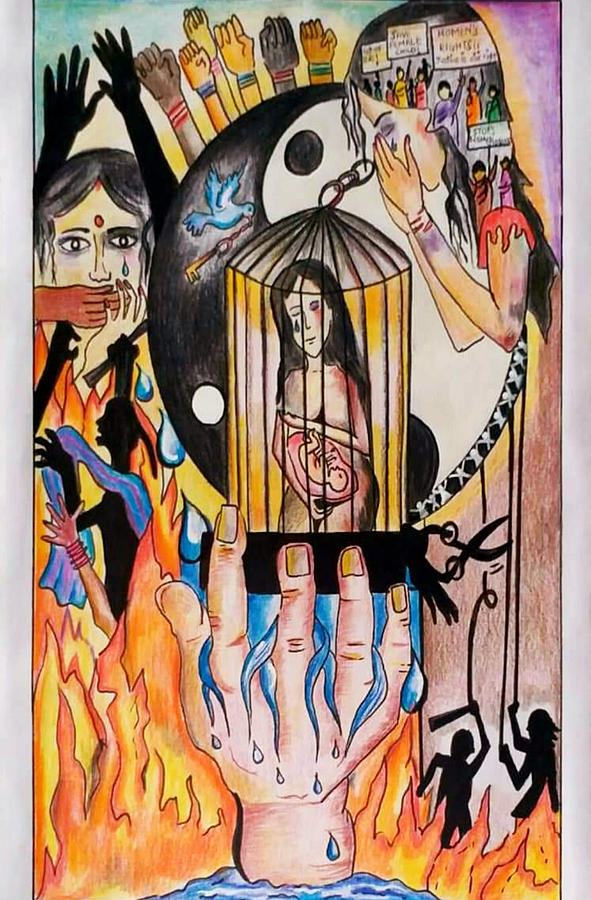
Sexual harassment is a very serious global issue. It continues to be part of working women and girls experience in Pakistan. Harassment not only affects women and their families, but it also has a negative impact on communities and countries. Pandemics further exacerbated inequalities and the risk of all forms of violence and harassment against women and girls. The risks and threats of abuse and exploitation for women and girls have increased during COVID-19 in Pakistan due to a variety of reasons including lockdowns, loss of income and employment or decreased incomes of households. While lockdowns and stay-at-home orders may be crucial in limiting and preventing the spread of COVID-19, they also have a devastating impact on women and girls living with the risk of gender-based violence (GBV), as many of the factors that trigger or perpetuate violence against women and girls are compounded by preventive confinement measures.
Emerging global data has shown an increase in calls to Violence Against Women and Girls (VAWG) helplines. Unemployment, economic instability and stress may lead offenders to feel a loss of that power, which in turn may exacerbate the frequency and severity of their abusive behaviour. At the same time, the crisis is generating additional barriers for women and girls’ access to essential life-saving services such as counselling and justice resources, and legal advice; sexual health and other crucial medical assistance; and the provision of refuge. In this context, as victim-survivors are further isolated from assistance and social support networks, the negative health and well-being impacts worsen, and the risks of more lethal and extreme violence increase. As the world is distracted by the pandemic, many perpetrators take on an ever-greater sense of impunity, assuming that they have the freedom to act without restriction.
Women who face greater vulnerability to multiple forms of discrimination, including those who are older women, those living with disabilities, LGBTQI and trans women, migrants, displaced and refugee women, rural women, and those living in informal settlements, suffer even higher risks and additional obstacles in accessing essential services.
The underlying causes are not the virus itself or the resulting economic crisis, but rather an imbalance of power and control. This imbalance stems from inequality between men and women, discriminatory attitudes and beliefs, gender stereotypes, social norms that tolerate and perpetuate violence and abuse, and societal structures that replicate inequality and discrimination.

We need to contribute in prevention to stop violence from occurring in the first place. This means investing in whole-school approaches to VAWG, community mobilization, working with men and boys on transforming harmful masculinities, and promoting more healthy and equal relationships. We must also address the impact of VAWG on children and young people, ensuring that women and girls can access long-term specialist support services and empowerment programmes, and putting an end to impunity of perpetrators. We need to invest in innovative approaches that utilize new technologies and behavioural science to promote behavioural change. Finally, we must recognize the important role that women human rights defenders and feminist movements have played and continue to play in preventing VAWG, and increase their funding. This has proven to be the single most effective measure in preventing VAWG. UN-Women, is working with UNDP, UNFPA and other agencies of the United Nations system on many of these strategies, including the Spotlight Initiative, the largest global effort launched to prevent VAWG, with an unprecedented investment of 500 million euros on behalf of the European Union.
Brutality against ladies and girls is anything but an unavoidable piece of our societies. It can and should be forestalled. A ton of progress has been made in the previous many years, yet we actually have far to go to arrive at the goal-oriented objectives of the 2030 Manageable Advancement Plan. 2030 Sustainable Development Agenda.

